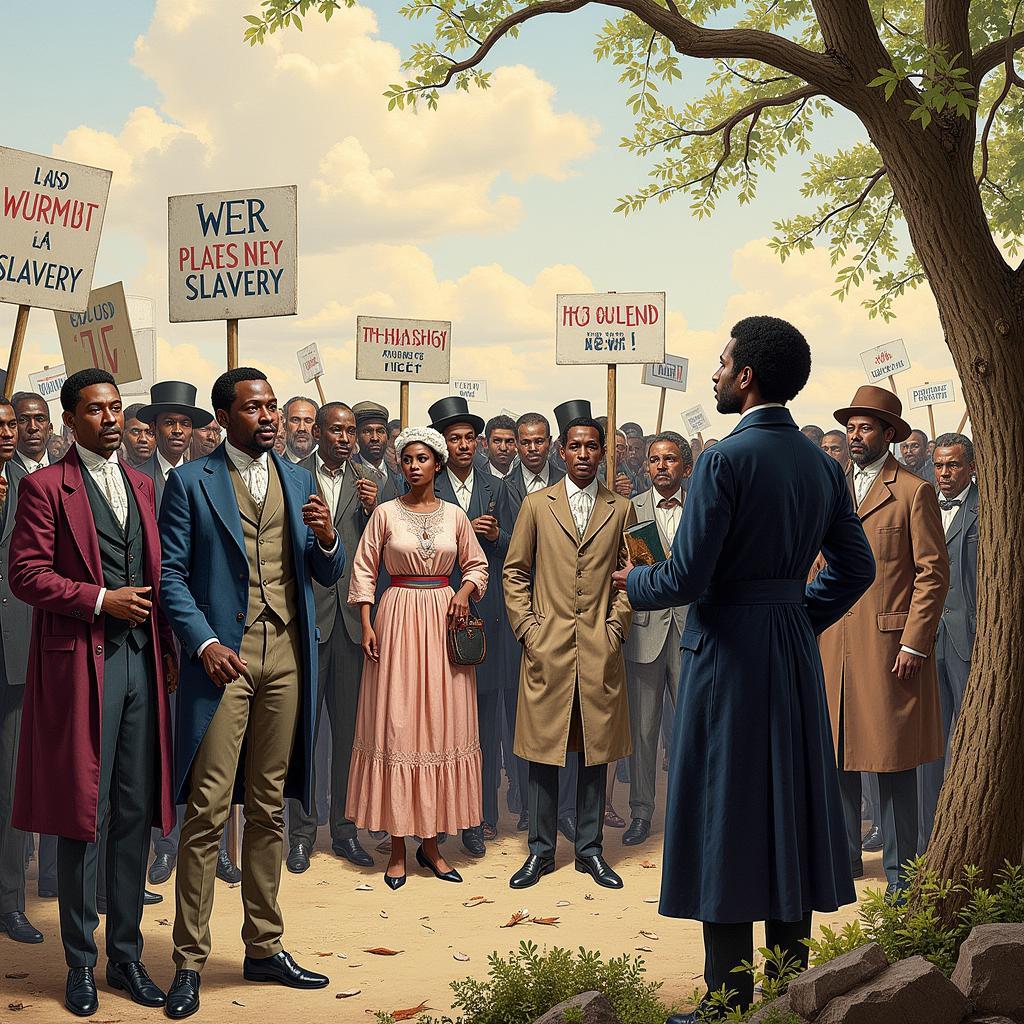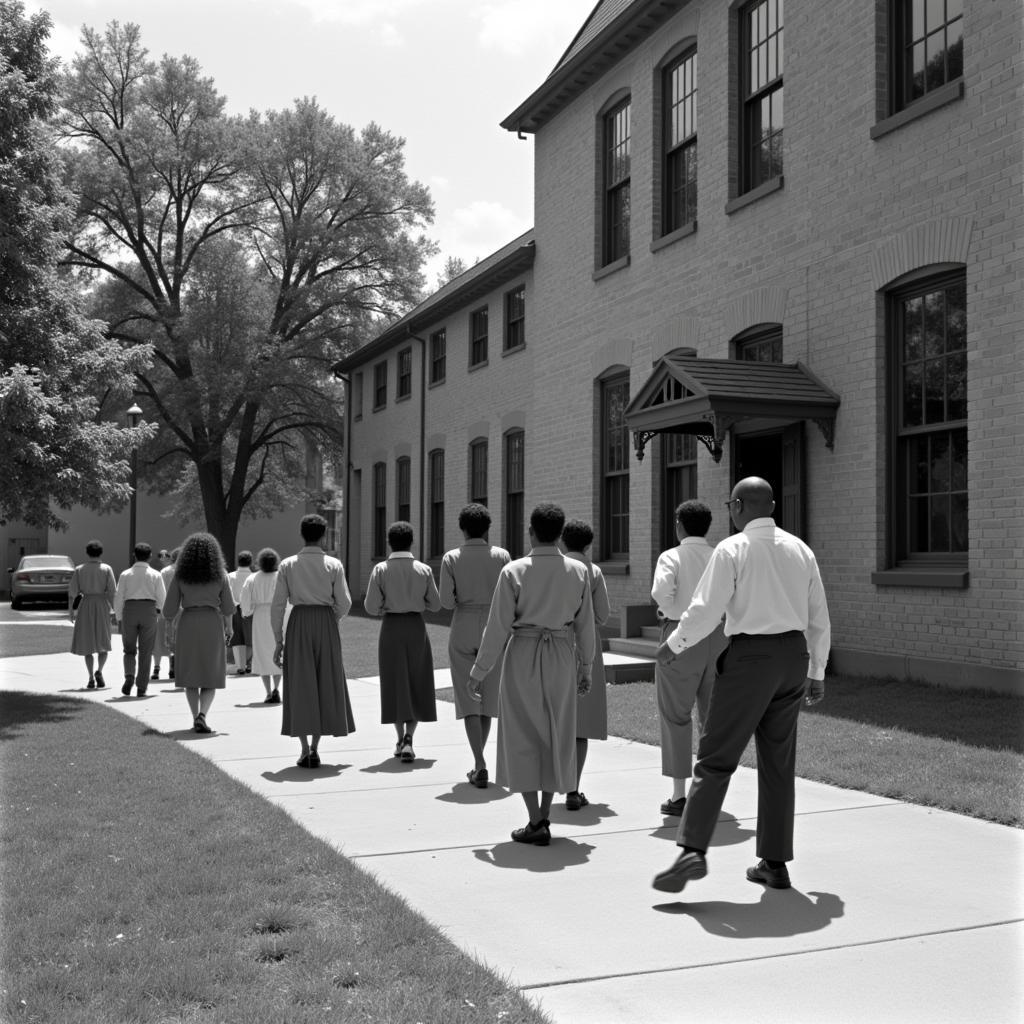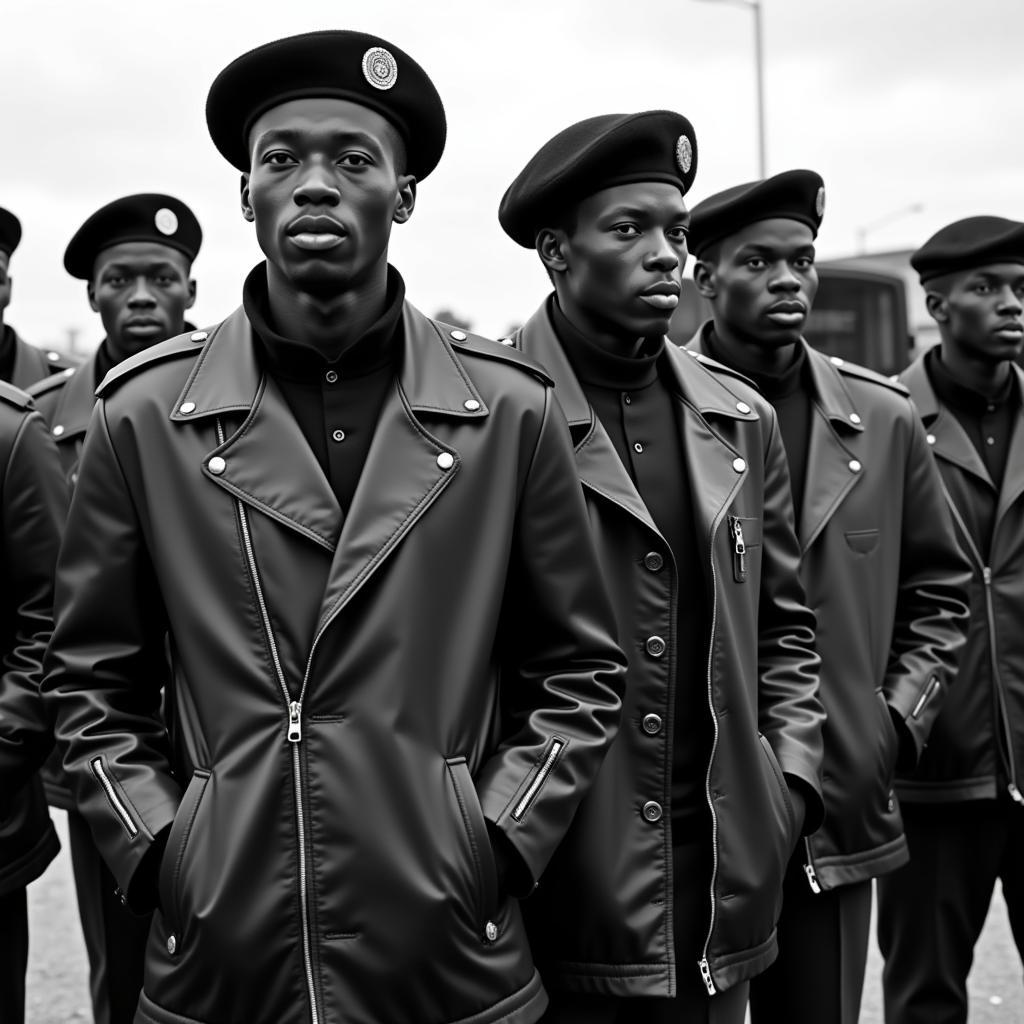A History of African American Activist Groups
The fight for racial equality in the United States has been long and arduous, with African American Activist Groups playing a pivotal role in pushing for social, political, and economic justice. These organizations, formed in response to systemic racism and discrimination, have employed a range of strategies, from peaceful protests to legal challenges to direct action, to achieve their goals. Understanding the history and impact of these groups is crucial to understanding the ongoing struggle for racial equality in America.
Early Formation and the Fight for Abolition
The roots of African American activism can be traced back to the 18th century, with the rise of abolitionist movements. Figures like Frederick Douglass and Sojourner Truth, both former slaves who became powerful advocates for abolition, played crucial roles in these early movements. They challenged the institution of slavery through powerful speeches, writings, and activism. Organizations like the American Anti-Slavery Society, though predominantly white, provided platforms for Black abolitionists to share their experiences and advocate for freedom.
 Early Abolitionist Meeting
Early Abolitionist Meeting
The Underground Railroad, a network of secret routes and safe houses used by enslaved African Americans to escape to free states and Canada, stands as a testament to the collective action and resistance against slavery. This clandestine operation, facilitated by both Black and white abolitionists, highlights the power of organized resistance in the face of oppression.
The Rise of the NAACP and the Fight for Civil Rights
The turn of the 20th century saw the emergence of new African American activist groups, most notably the National Association for the Advancement of Colored People (NAACP) in 1909. The NAACP, founded in response to ongoing lynchings and racial violence, adopted a legal strategy to challenge segregation and discrimination. Their landmark victory in the Brown v. Board of Education Supreme Court case in 1954, which declared state-sponsored segregation in public schools unconstitutional, marked a turning point in the fight for civil rights.
 Brown v. Board of Education
Brown v. Board of Education
The Civil Rights Movement of the 1950s and 1960s saw a surge in African American activism. Organizations like the Southern Christian Leadership Conference (SCLC), led by Martin Luther King Jr., advocated for nonviolent resistance and civil disobedience. The Student Nonviolent Coordinating Committee (SNCC), composed of young activists, challenged segregation through sit-ins, freedom rides, and voter registration drives.
“The Civil Rights Movement was a watershed moment for African Americans,” states Dr. Alicia Johnson, a historian specializing in African American activism. “The courage and sacrifice of these individuals and organizations paved the way for significant legal and social changes.”
Black Power and Beyond
The assassination of Martin Luther King Jr. in 1968 marked a turning point in the Civil Rights Movement. The rise of the Black Power movement, led by figures like Malcolm X and Stokely Carmichael, challenged the nonviolent approach and advocated for self-defense and Black self-determination. Organizations like the Black Panther Party, founded in 1966, addressed issues of police brutality, economic inequality, and community empowerment.
 Black Panther Party
Black Panther Party
While the Black Power movement was short-lived, its impact on African American activism is undeniable. It shifted the focus from integration to self-determination and inspired a generation to challenge systemic racism.
Contemporary Activism
African American activist groups continue to play a crucial role in addressing contemporary issues such as racial profiling, police brutality, mass incarceration, and economic inequality. Organizations like Black Lives Matter, founded in 2013 in response to the acquittal of George Zimmerman in the shooting of Trayvon Martin, have utilized social media and grassroots organizing to raise awareness about racial injustice and mobilize communities.
Do you enjoy learning about African cuisine? Check out this delicious African catfish recipe.
Conclusion
From the fight for abolition to the Civil Rights Movement to contemporary activism, African American activist groups have been instrumental in pushing for social justice and equality. Their unwavering commitment to challenging systemic racism and discrimination continues to inspire generations to fight for a more just and equitable society.


